Just two projects old, and Atika Chohan, the voice behind two of the most contemporary and “lived-in” Hindi films of recent times (Margarita With A Straw, Waiting), is more than just a dialogue writer. That her work has coincided with actress Kalki Koechlin’s barnstorming on-screen performances has only lent credence to her role as a perceptive character-builder for her directors. With full-fledged screenwriting work in the offing, and no more compromised decisions looming large, Chohan has worked hard to dream.
Here, in a freewheeling chat with CHINTAN BHATT, she looks back — and ahead — on her young career, journalism days, modest beginnings, the intuitive and misunderstood nature of her craft, her good fortune and much more.
Tell me a bit about your background.
AC: Oh, this could take a while. I’m originally from Delhi, but I’ve been in Bombay for around seven years now. I studied at DU (Delhi University), as the quintessential English Lit. type for five years, after which I went to Hindu College to do my Masters. That was the point I really wanted to be an Art Critic — [smiles] as pseudo as it gets for a self-serious 23-year-old student — and I was actually studying to be one. I had enrolled in the Art History program at the National Museum, perpetually cash-strapped and not very sure of how this career would turn out. This is where I stumbled into the world of journalism. I wanted to pursue contemporary art as a beat, but owing to its exclusivity, this wouldn’t have kept me very busy. So my editor would ask me to interview popular film celebrities in the meantime. This wasn’t a career I felt very strongly about, but things rolled fast and, before I knew it, I was with CNN-IBN for two years. I was quite lost in those days; it automatically escalated because I was just capitalising on my ability to deliver a competent copy on time. I wasn’t there because I wanted to be doing that job. I used to imagine that I was the most reluctant journalist in Delhi.
I found myself in a state of severe inner crisis, a point where the two parallel lines of your personal and professional life merges, causing you to break away. I had to step back and figure out what I wanted to do. I left everything and gave my FTII (Pune) entrance exam, got through, and studied screenwriting for one-and-a-half-years there. But honestly, even after I came to Bombay in 2008, I didn’t know what sort of a writer I would be, or the kind of films I wanted to work on. I was just very driven by a sense of passion, an innate feeling to be myself. This was a conflict with the circumstance at large: working in an industry where you mostly survive on commissioned work. Your bound script is rarely read, and you invariably end up working on ideas of the people who pay you. This struggle in the beginning is common for everyone, both externally and internally: you’re trying to figure out as a young writer how to position yourself, and at the same time you’re just lying through the day to survive in the city. If someone wanted a “masala” script, I couldn’t behave like I’m extra intelligent and reject it; I’d have to tap into that side of me and force it out, convincing myself that I can write differently too. The first two years went by like this, trying to figure out the smaller things, trying to figure out big bad Bombay in general: Where and what local train does one catch on what platform, the difference between 9 and 12-coach trains, how to sync timings so that one doesn’t have to make a suicidal dash etc. I’m glad I went through this gestation period because it eventually made the journey really organic.
After I got my first few offers initially, I realised that I couldn’t be dishonest about writing anymore; nothing would make me sink more than seeing bad work come out of me. Is this why I had thrown away a relatively secure career? I questioned myself everyday. I had to find my voice. Some very lucrative opportunities came my way; I would struggle on those assignments for two weeks, and then tell them that it was not happening. I couldn’t do a Kuch Kuch Hota Hai just because I wanted to fit in, it just wasn’t my cuppa. I was repeatedly told that it was silly of me to antagonise these big banners, and that I was being too idealistic. I just couldn’t write it, even though I understood what they wanted. It’s not that they were wrong or I was right; I just couldn’t find my own words in this. This depressed me quite a bit.
Somehow, I got lucky when I started getting a string of assignments that helped me nail the voice I thought was mine, and convinced me that I still had something to offer. There were things that I had written, on the basis of which I got picked for films like Margarita, With A Straw. I don’t exactly know what that voice is, but it’s not dishonest. It was important that I identified it, and continue to consolidate it. And now, this is where I am. I haven’t arrived yet, but this feels like the beginning of something. I feel comfortable and relieved. Today, right now, gives me a fair amount of confidence that I’m heading in the right direction.
You seem to have hidden those “rent-cheque assignments” quite well. I couldn’t find any while doing my research on you…
Well, here goes. One of my first jobs in Bombay was a YRF television show called Rishta.com, way before the web-series days, back when they really experimented in the TV space. I felt like this cool young person picked to be a writer on this cool new show. I was very proud of the work I did on that show; I still watch episodes on Youtube whenever I need some inspiration. It was a show that came way before its time. If it had released now, perhaps it would have fit right in, because the content is very relevant. Because nobody saw them and the resulting low TRPs, shows like that got waylaid, and nobody made stuff like that again. Everyone thought it was a failed model. I really slogged for it though. The experience was necessary, and I got credit for it. Then there was a History Channel 6-part series called “100 Years Of Bollywood” that I wrote and compiled, which Karan Johar hosted in his inimitable style. Again, I’m grateful I did that, because I bought a washing machine with the money. The third “secret” thing between Margarita With A Straw and Waiting was a show, whose dialogues I wrote for a year, called Airline on Star Plus. The idea was to earn enough money to pay my wedding bills [laughs]. I sold myself a little because I really wanted to be married with the works — Kanjiwaram sarees and posh banquet halls. Other than these gigs, I was mostly idle or jobless, or working on film scripts that never quite saw the light of day.
Currently, I’m working as a co-writer on Agra with Kanu Behl, the superb director of Titli. He’s been keeping me fairly busy and enslaved for a year now. And I’ve just signed on as a screenplay-dialogue writer for a project with Drishyam Films called Dehleez: a lovely little subject about a girl entering her menstrual threshold, directed by a young filmmaker named Sreemoyee Bhattacharya.
Screenplay and Dialogues — are these completely separate skill-sets here? It’s quite different from the West, where writers are given a single “Written by” credit. How do you manage to go about writing for someone else’s screenplay?
This question often leaves me slightly bristled. I admit: when one is referred to as a specialist “dialogue writer”, it sounds like a condescension of skills. At times, though, this could be a distinct skill-set needed for a film, subject to its exploration of different mental and physical languages in a vast country like ours. But the technical distinction is a bit ambiguous and funny here. The problem being, there are several types of dialogue writers: Some of them are only translators, and some are hired to bring in only the nuances of a particular region. I don’t see how a clear definition can be made. Good dialogues ebb from the stomach of a great screenplay. Written lines aren’t “dialogue baazi”, but serve as beats with which you move a story forward. I don’t see how a dialogue writer without a decent understanding of screenplays can do her job well. A screenplay writer, at times, isn’t always able to bring in the smaller details, but a dialogue writer in most cases has to be somebody closer to the crafts of editing and direction. He/she can bring in a sense of mise en scène, and how the exchange is timed and placed. There’s more to it than the simplistic crediting labels.
I can only speak for myself, and I don’t actually mind being called a dialogue writer, just the way lyricists execute a crucial part of a whole. But I do feel a little shortchanged when I’m shunted down the credit list. I’ll have to work very hard not to be typecast as the “item girl” of certain screenplay flavours. But there is enough work in the pipe line, one of which can give me my first screenwriting credit, after which I can hopefully chug forward as a full-time ‘all-inclusive film writer’. [smiles] Tags aside, eventually, one has to look at it as a collaboration with a good team. As long as I’m in the writers’ room, I’d just like to contribute in a way I know I’ll be strongest at. And, so far, I’ve been lucky enough to do just that.
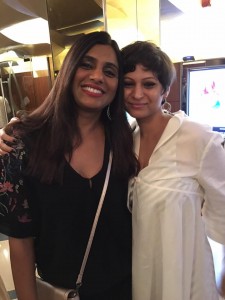
With director Anu Menon
When Anu Menon’s Waiting came to you, what stage was the script at?
The screenplay was ready. It was written in English. The director was satisfied with this draft to the extent of pitching it to producers and actors. I was brought on for the dialogues to bring in nuances between the two characters (Naseeruddin Shah as Shiv, Kalki Koechlin as Tara), because Anu noticed that I was able to bring some emotional heft to them in a very local way. Both of us felt there was a need to add to the characters and, in turn, the screenplay in general.
The biggest creative freedom I was given was that she allowed me to turn Tara’s character on its head. She had written someone who was quite different. We knew what the journey of her grief would be in terms of structure, but we didn’t know why or how she was reacting, what kind of person she is, or how she is a foil to Shiv. A lot of people who were reading the draft said they weren’t able to empathise with her initially. That was my key job: to understand who Tara was. So I came up with the idea that she should be an aspiring stand-up comedian/viral-video artist, someone who thrives on the internet, a person who aspires to work with an All India Bakchod (AIB) kind of organisation. The minute we cracked that, we understood her world, and, in turn, how she would react when shunted to a world of hospitals and adulthood, and to Shiv, who rarely ever goes online, can’t understand social media too well, a guy who has been retired for seven years and is completely cut off from today’s generation. This conflict of two distinct worlds had to be done realistically, and not in the typically mainstream way. They had to ease in to each other, not be exaggerated contrasts. A lot of it was derived from who I was at that point — how I deal with grief, how pathos for me is almost bathos and my overall experience with such situations. The minute her language changed, we started noticing that there was a need to add a lot more. Her character was bringing in a lot of inquiries and responses, which made the script change little by little.
Internally, I know I’m an integral part of the screenplay of this film; I’m not responsible for every line written, the same way any screenwriter can’t say that every single scene is written and conceptualised by them. I was very happy with the way I was treated, given liberty to do my stuff, and given credit along with the screenwriters. This respect was important. I used to be a bit confused, wondering if people would think that I’ve just translated the lines. And the dialogues are in Hin-glish, so I worried about whether they would think I had done anything at all. The best part about Waiting, though, is that the dialogues are the screenplay. The conversations between them, the beats in them — they take you to the next stages, letting the drama escalate and build over time. It was very fulfilling to see it shape out the way it did. Hence, I don’t really mind being labeled as the dialogue writer here, because it does amount to more than the standard screenplay-writing credit. It was a challenge, but I’ve come out as more of a writer than I was before the film.
The dramaturgy of Hindi films — what we generally call ‘Bollywood-ish’ melodrama — isn’t rooted in reality as such, and occasionally comes across as a fake, heightened version only to entertain. Being the kind of writer that you are here, do you learn from this about what not to do?
[laughs] Tricks of the trade, impossible to reveal. You’re trying to make me piss everyone off, aren’t you? But in all seriousness, the only secret is honesty. We are all very different people, but there’s an undeniable truth to the cliche, “We are a sum total of our experiences.” Perhaps there can be truth to all that melodrama, or at least the writer’s interpretation of it. It may not work for me, but there are many who will swear by it, and be convinced by the fact that these things happen in their own households. Dialogue is basically a tool of subtext; it is never supposed to be taken literally.
Like the parking lot scene in Waiting, where Tara and Shiv begin fighting about something, and it quickly snowballs in something else totally? It was more about what was not said during their exasperated rants, instead of what they were screaming.
Absolutely, yes. You nailed that scene. That’s what I mean. They’re shouting at each other, but it’s about how they’re both struggling, speaking and fighting with themselves through the scene. They’re fighting for their own beliefs and ideals in a selfish way. That’s how you play with subtexts. You cannot arrive here without an understanding of characters and screenplays. It’s also the camera angle at times; a writer worth her salt will be able to visualise and judge how to show her characters speaking and expressing themselves — a particular emotion, or the slight tilting of the face to denote something. All of this is essential, and it’s no one person’s territory. That’s why the director is so important; he/she combines all of this and has to give it coherence and direction.
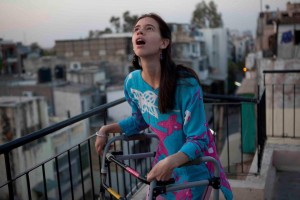 In fact, Margarita With A Straw is a great example for dialogue writing; it can also be about choosing your silences, the way this film does. People congratulate me on my work for Waiting, but Margarita is a more beautiful film for dialogues — the protagonist has cerebral palsy, she can’t even complete a sentence, and she has a very unique way of dealing with her own disability and communicating her feelings. She knows she isn’t heard well by people around her, but is only audible enough for her mother. She is attempting large sentences freely with her mother, but she doesn’t do it with friends for fear of being judged when not very clear. She uses monosyllables with them, and tries to be cooler and spare. That’s how we discover her character. She is really sharp and self-aware, manipulative to an extent, conscious of how she is being perceived, and is in denial of the fact that disability is a hinderance to find love. I look at it as a film for dialogues, or constructing a mode of dialogue. I’ve used silences and half-finished sentences in a way that should feel so real that you never notice it. And that’s a compliment on its own, much like good editing is never noticed — the naturalness and routine-ness of exchanges in the film.
In fact, Margarita With A Straw is a great example for dialogue writing; it can also be about choosing your silences, the way this film does. People congratulate me on my work for Waiting, but Margarita is a more beautiful film for dialogues — the protagonist has cerebral palsy, she can’t even complete a sentence, and she has a very unique way of dealing with her own disability and communicating her feelings. She knows she isn’t heard well by people around her, but is only audible enough for her mother. She is attempting large sentences freely with her mother, but she doesn’t do it with friends for fear of being judged when not very clear. She uses monosyllables with them, and tries to be cooler and spare. That’s how we discover her character. She is really sharp and self-aware, manipulative to an extent, conscious of how she is being perceived, and is in denial of the fact that disability is a hinderance to find love. I look at it as a film for dialogues, or constructing a mode of dialogue. I’ve used silences and half-finished sentences in a way that should feel so real that you never notice it. And that’s a compliment on its own, much like good editing is never noticed — the naturalness and routine-ness of exchanges in the film.
Humour, especially amidst tense situations, seems to be a trademark of your writing — something that lends a relatable bit of contemporary realism to the film, considering how uncomfortable Indians can be when confronted with a crisis.
It’s funny that this shows in my writing, because I’m perhaps one of the most serious people around. Maybe it’s because I notice, and observe, life around slightly more than regular people do. It’s ironic that things you don’t experience or imbibe naturally can be examined very carefully and effectively from the outside. It becomes more clinical and precise. Also, there’s an inherent funniness to the concept of life. If you look around, people are always playing their own number. The habit to diffuse tension with silliness is a very common one, and it’s easier to notice here. People get so caught up and engaged in the seriousness of things at times that they don’t really see how inappropriate they can be. Some don’t even know that they’re crossing lines all the time. It can be amusing to recognise this from a distance, like most of us always do.
Especially people past a certain age, who seem to think it’s totally natural to be inappropriate under the pretext of senility.
Yes, especially because people in India are, by nature, kind of insensitive. Not because they’re emotionally like that, but because they’ve never been told that they’re being sentimentally crude and asking all the wrong questions. But anything gets by here, and that’s how we are. Hum toh aise hi hain. Our culture encourages a lot of duality to engage with a world like this. People keep their private life closely guarded, and this is at the cost of often never discovering who they really are. If you sharply observe life, you will see a passing emotion on someone’s face when they are offended, and you notice that this is really who that person is. It’s then forgotten and everyone moves on in a jiffy. But that split second is what I try to build upon in my work. It’s fleeting, but says far more than entire phases of one’s life.
For instance, the bank scene in Waiting, where they say something on the lines of “people are such fuckers…,” and viewers in the hall laugh at this, not quite realising that this is who the characters really are. They’re not really being funny, but simply holding a casual mirror to our faces.
Absolutely. A lot of things said to “humour” people in the film is written with poignancy in mind. The more poignant they get, the funnier it seems, in such a familiar everyday manner. You feel like: Am I the only grumpy person in the room who has no humour whatsoever to figure out these adult things? Am I going to sulk about it all day? This duality, which even I’ve developed, is common. I’m equally sensitive too, which is why, like these viewers, I may have built a shield over time below which I live and work my way around.

How keen are you on diversifying? So far, you’ve done urban characters with internal conflicts, and quite successfully at that.
I was telling one of my directors the other day that I want to stick to what I know, and be good at it. I want to savour that honesty. That isn’t to say that my range is very limited. I’m doing Agra now with Kanu, with a lower-middle class environment — another India in which I have lived in and experienced. Even if I may not have exchanged that certain kind of language, I understand its noises and the sounds of North Indian streets, and I know how to channel that particular range of frequency into my work. Again, it comes down to familiarity. I could even do a period drama, but I would have to hire a dialogue writer myself to bring in the finer aspects and nuances of that era. For me, writing is basically negotiation of a self-discovery. As long as that is achieved, it could be in any language. As long as the dramatic beats exist, I could do it. As long as it examines something honest, it’s fine, irrespective of structure and themes and periods.
If you think about it, any story in the world is a coming-of-age story; any story is about a transformation; any story is about moving from point A to point B. That’s the core, and it never changes. Some journeys will be far more exciting, subject to what I’d like to address at a particular point of time. But then the ‘unknown’ journeys, the ones I’m not familiar with, can be equally enjoyable to explore while writing the film. I can do a Maine Pyaar Kiya, but a psychological or subtle one. As long as I get the freedom to do it the way I understand best, I’d do a good job. I’ve been lucky with that freedom so far. Even with Kanu, his understanding of structure and theme is masterly. I’ve learned so much from him in the last year. Therefore, it’s important to be open to all kinds of worlds and experiences. It should make me wake up in the morning and be excited about creating and writing. It’s as simple as that, at times. Nothing grand about it.
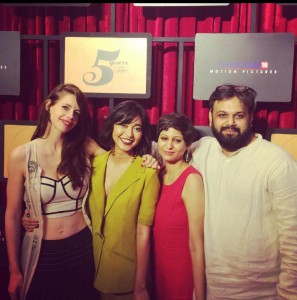
Celebrating 5 years of ‘Margarita’
You’ve worked with good actors so far. But has there ever been a time when you have written verbose sequences, which you’ve envisioned in a certain way, which don’t quite pan out when spoken on screen?
I haven’t experienced it so far. I’m really early in my career; my directors have been experts at timing a scene, and we’ve almost never overwritten a scene as a result of this. We have known exactly what we need. With Kanu, too, we play it out with each other, and leave a scene alone once the honesty of it has been achieved. I’m not sure if I’m very fond of verbose films, but even if there was one, like a Tarantino film (where you know why dialogues are so pertinent, and more of a style and an atmospheric accessory), you have to understand that this verbose-ness or lack of it could mean different things in each film.
Any sort of writing that puts you off?
Sometimes, you can just see that the writing has not been “lived”. This shows immediately, and it puts me off, because you’re just putting on a show for the heck of it. If everyone looks deep down, there are enough interesting things in their life worth making a film about. All chances are valid, though, in their own right, and I shouldn’t question these different types of writing. I’d rather concentrate on what I want to express through my work. Right now, I’m too busy with my own journey to spend time on dissecting and analysing inadequacies of others. And that’s how it should always be.
Any particular kind of writing or films you’re fond of?
I’ve read so much and seen so much that it’s hard to pick specifics. But Asghar Farhadi is somebody who I really look up to. Maybe intuitively I’m that kind of person, one who negotiates a lot even in conversations, almost argumentative to the point of building a point like a lawyer. I notice how he uses his “dialogues” — I wouldn’t even call it that — as a plot. He takes the plot forward, inch by inch, like building a wall brick by brick. And suddenly, you’ll find yourself in a complete room with apparent meaning. This is a style you can never cheat on. You can only intuitively observe and gain from it. I’ve seen all his films, and it guides me every time I write. I haven’t done even 1/100th of what he has achieved in his career, but if I can get somewhere even remotely close, I’d be a satisfied person.

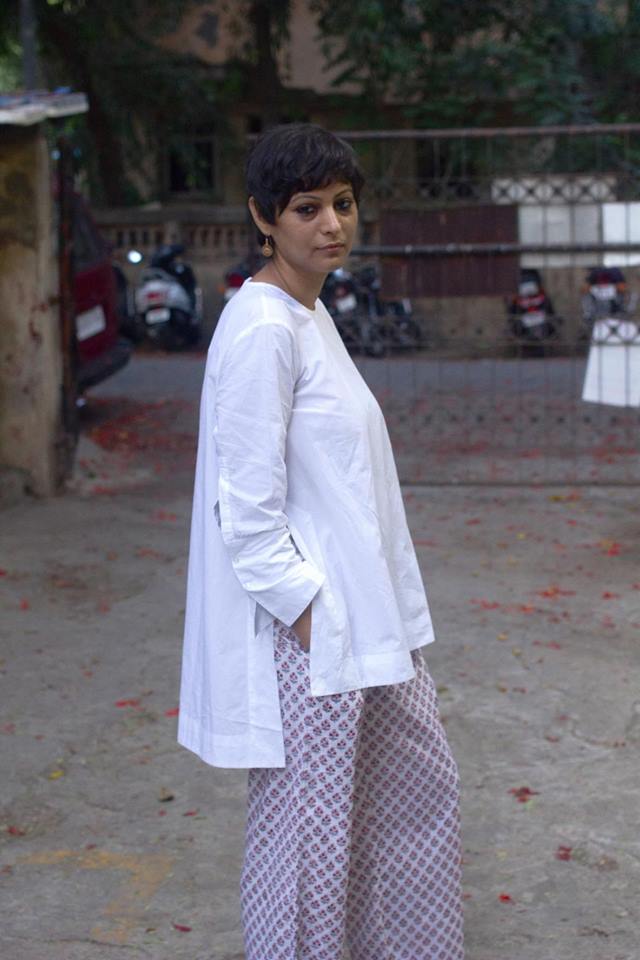

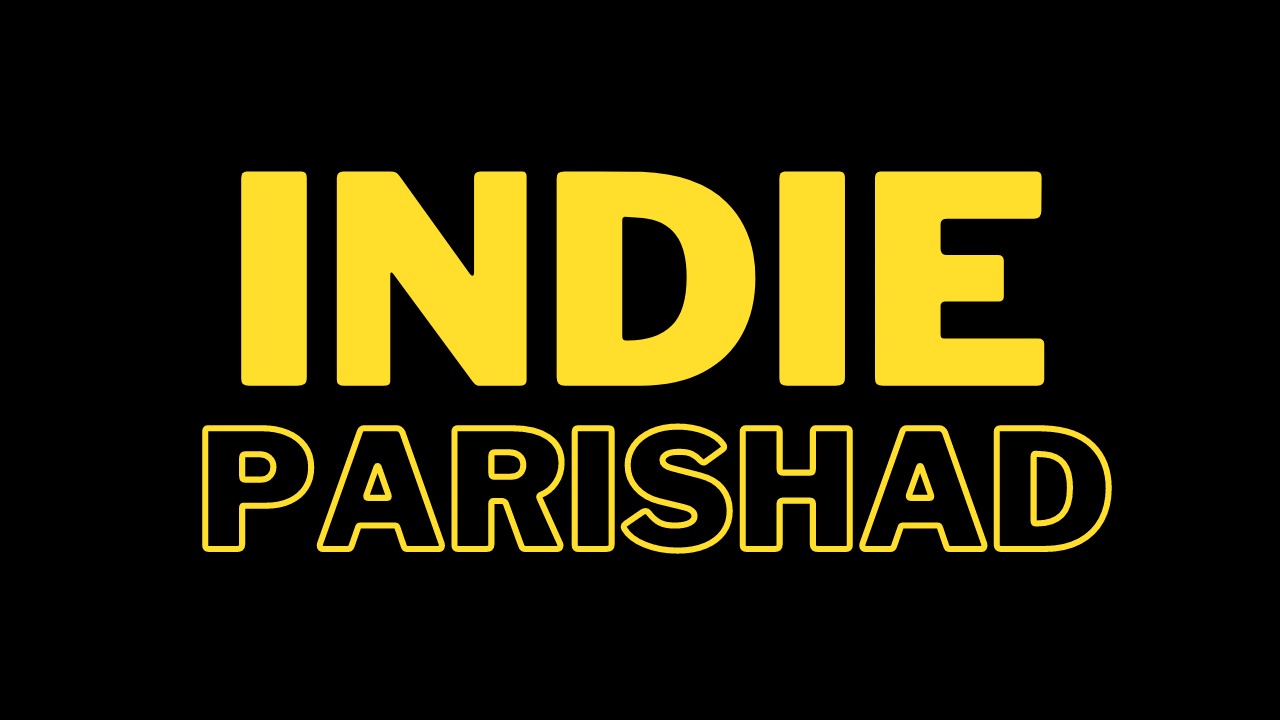
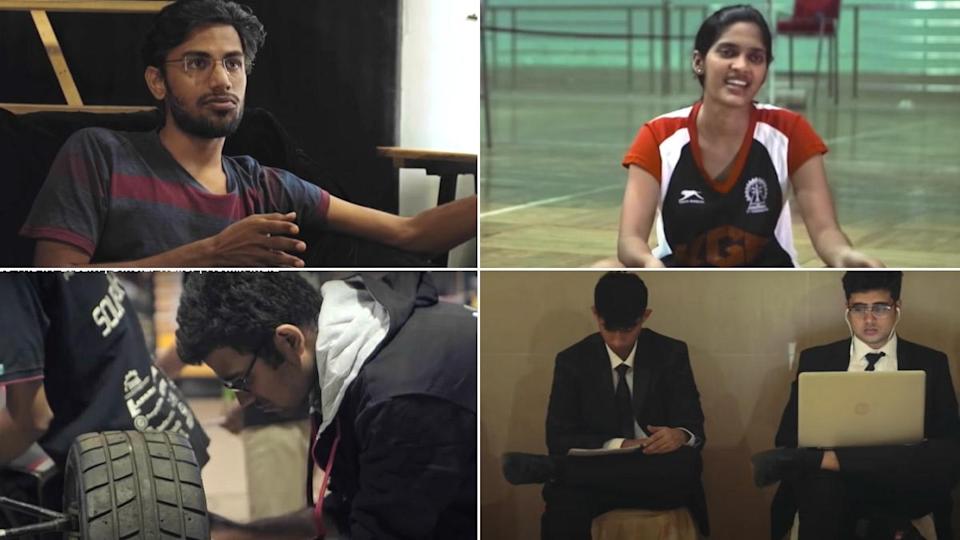
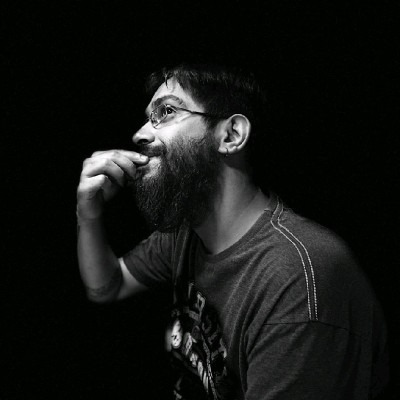



I was eagerly awaiting Kanu Behl’s Agra. And now with Atika on board I can barely wait.
Amazing read! Great job with the questions…